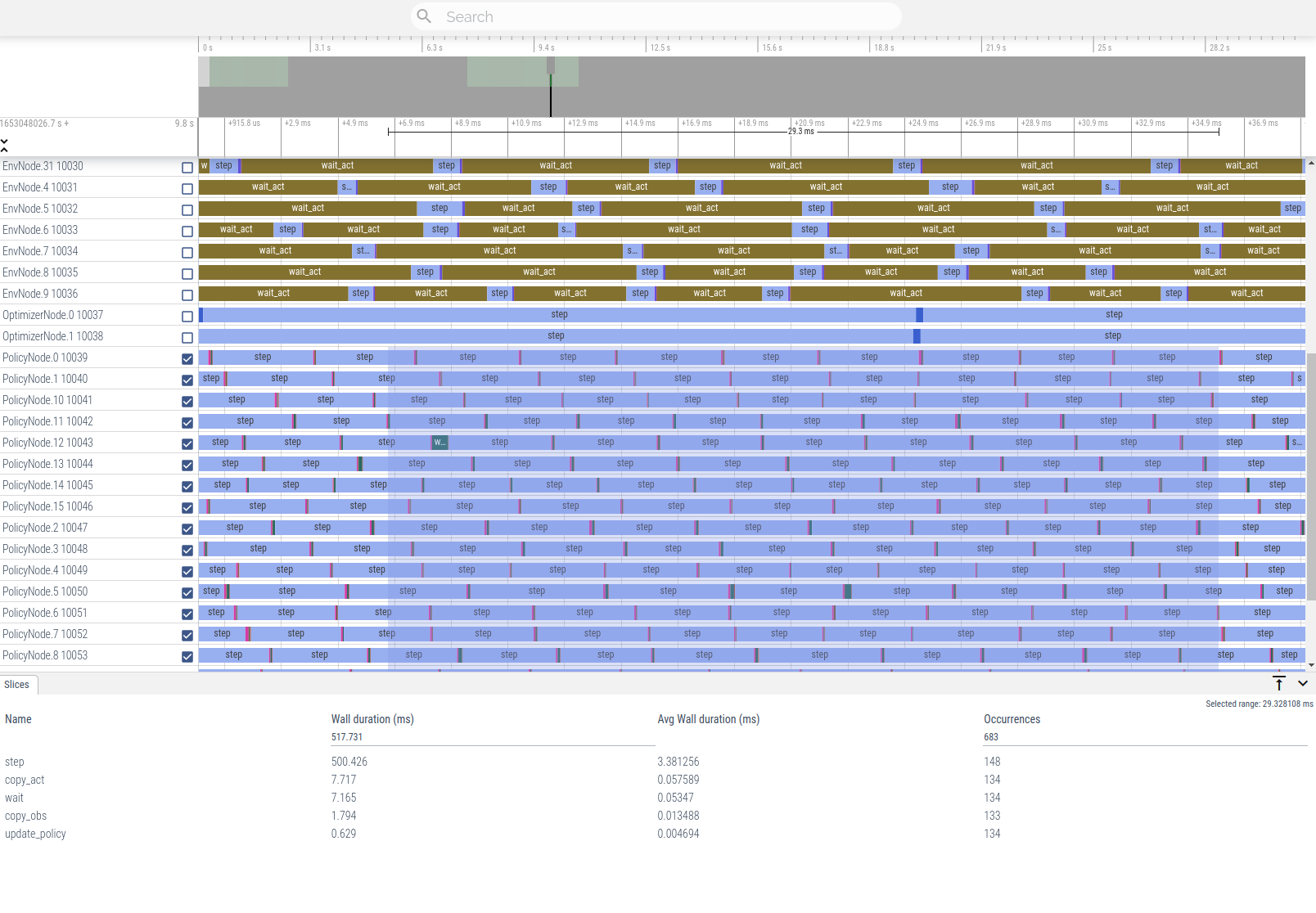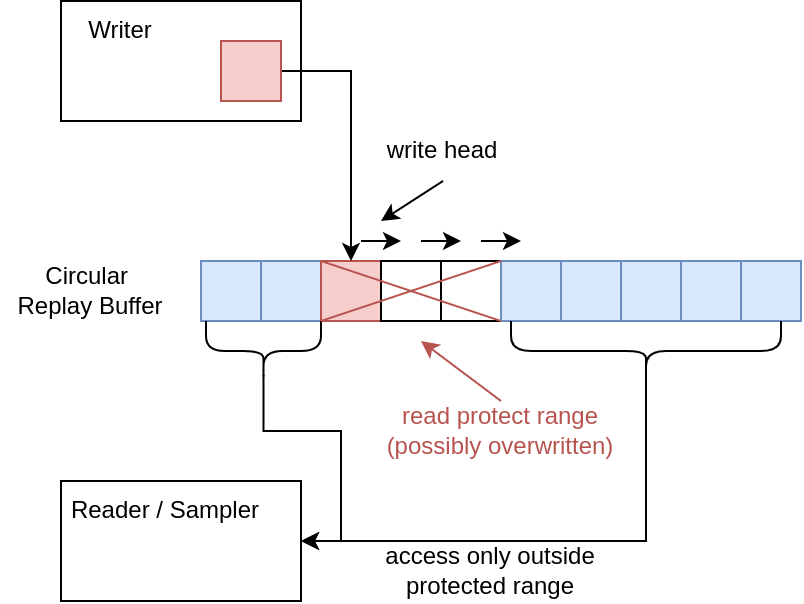Event-driven fully distributed reinforcement learning framework proposed in "A Versatile and Efficient Reinforcement Learning Approach for Autonomous Driving" (https://arxiv.org/abs/2110.11573) that can facilitate highly efficient policy learning in a wide range of real-world RL-based applications.
- Super fast RL training! (15~30min for MuJoCo & Atari on single machine)
- State-of-the-art performance
- Scheduled and pipelined sample collection
- Completely lock-free execution
- Fully distributed architecture
- Full profiling & overhead identification tools
- Online visualization & rendering
- Support multi-GPU parallel training
- Support exporting trained policy to ONNX for faster inference & deployment
- Clone this repo
git clone https://github.com/imoneoi/onerl.git
- Install PyTorch and related dependencies (see requirements.txt)
pip install -r requirements.txt
MuJoCo benchmark
(Any machine with a single GPU)
python -m onerl.nodes.launcher examples/config/1_gpu/mujoco_sac_<Env>.yamlAtari games
(For 2 GPUs)
python -m onerl.nodes.launcher examples/config/2_gpu/atari_ddqn_<Env>.yamlIsolate nodes, $global
YAML format
OpenAI Gym interface
implement reset, step
class RandomAlgorithm(Algorithm):
def __init__(self,
network: dict,
env_params: dict,
**kwargs):
super().__init__(network, env_params)
# Initialize algorithm here
def forward(self, obs: torch.Tensor, ticks: int) -> torch.Tensor:
# Return selected action by observation (obs) at time (tick) as tensor
if "act_n" in self.env_params:
# discrete action space
return torch.randint(0, self.env_params["act_n"], (obs.shape[0], ))
else:
# uniform -act_max ... act_max
return self.env_params["act_max"] * (torch.rand(obs.shape[0], *self.env_params["act_shape"]) * 2 - 1)
def learn(self, batch: BatchCuda, ticks: int) -> dict:
# Update the policy using batch of transitions (s, a, r)_t
return {}
def policy_state_dict(self) -> OrderedDict:
# Return the state dict (a dict of torch.parameters) of the actor
# Which will be updated periodically to PolicyNode to interact with environment
return OrderedDict()- Enable profile recording
Set profiling=True and profile_log_path in global namespace
$global:
# Profiling
profile: True
profile_log_path: profile_log- Launch experiment, and profile will be recorded in meantime
python -m onerl.nodes.launcher <config_filename>- Convert to JSON format
python -m onerl.scripts.convert_profile profile_log/
- Open JSON profile by Perfetto UI
Open https://ui.perfetto.dev in browser and drag & drop the converted JSON profile profile.json
In action:
@inproceedings{
wang2022a,
title={A Versatile and Efficient Reinforcement Learning Approach for Autonomous Driving},
author={Guan Wang and Haoyi Niu and Desheng Zhu and Jianming Hu and Xianyuan Zhan and Guyue Zhou},
booktitle={NeurIPS 2022 Reinforcement Learning for Real Life Workshop},
year={2022}
}



